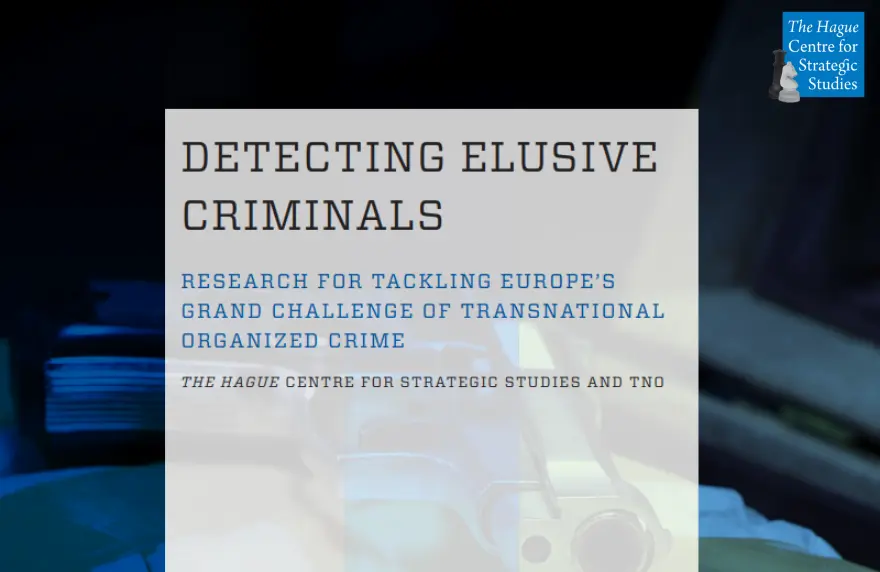Organized crime for the European market is a multi-billion dollar business that feeds on, as well as sustains, poverty and poor governmental control. As factors like the economic crisis and the emergence and growth of urban slums will sustain organized crime, this threat is likely to stay with us in the foreseeable future. Against this background, the HCSS report Detecting Elusive Criminals answers the following question: what research strands need to be explored further in order to find solutions for the threat posed to Europe by transnational organized crime?
The flexibility of criminal networks is remarkable, as they seem to think nothing of moving operations to other countries, entering into new partnerships and using other modes of transportation. Also, they are often quick to pick up on new technologies that help them run their businesses. The consequent lack of signature and standard operating procedures on the part of criminal networks means that they are increasingly difficult to detect.
Therefore, we suggest a series of research strands that are more preventive in nature. The detection of criminal networks should be applied to the preventive and early warning phase: we should development frameworks and vulnerability assessment tools to predict or estimate whether a certain area – a neighborhood, a city, a region – will in the near future have to deal with criminal networks. Other important research topics include the exploration of legal possibilities needed to exchange the information needed for these forms criminal detection, and the development of ways to involve the population in the gathering of information.
To download the report, please click here.
For a press release in Dutch on the report, click on the ”download” button on the right.

